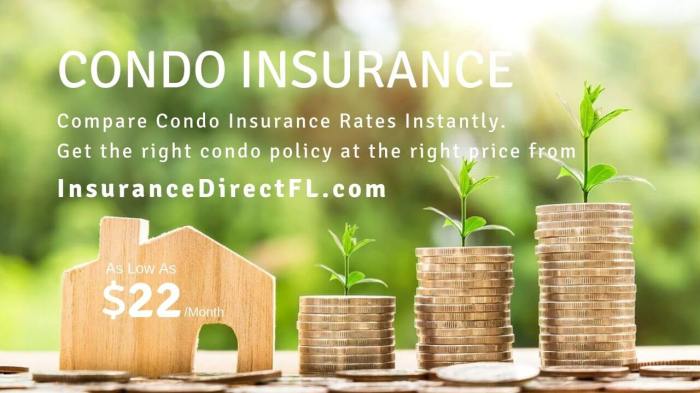Navigating the world of insurance can feel like traversing a dense jungle, especially in a state as unique as Florida. With its susceptibility to hurricanes and a complex legal landscape, understanding insurance quotes is paramount to protecting your assets and well-being. This guide serves as your compass, providing clarity and insight into the intricacies of obtaining and comparing insurance quotes in the Sunshine State.
From understanding the nuances of Florida’s insurance market to effectively navigating the claims process, we’ll explore various types of insurance, factors influencing costs, and the best methods for finding the most suitable coverage. We’ll demystify complex terminology and equip you with the knowledge to make informed decisions about your insurance needs.
Understanding Florida’s Insurance Market

Florida’s insurance market is a complex and often volatile landscape, significantly different from other states due to its unique geographic location and legal environment. Understanding its intricacies is crucial for both residents and businesses seeking adequate coverage. This section provides an overview of the key players, regulatory bodies, and factors influencing insurance costs within the state.
Major Players and Regulatory Bodies in Florida’s Insurance Market
The Florida insurance market involves a diverse range of players, including numerous insurance companies, both large national carriers and smaller, regional insurers. Some major players include Citizens Property Insurance Corporation (a state-run insurer of last resort), Universal Property & Casualty Insurance Company, and Florida Peninsula Insurance Company. The primary regulatory body overseeing the insurance industry in Florida is the Florida Office of Insurance Regulation (OIR), responsible for licensing insurers, setting rates, and ensuring compliance with state regulations. The Department of Financial Services also plays a significant role in overseeing the financial stability of insurance companies.
Key Characteristics Differentiating Florida’s Insurance Market
Several factors distinguish Florida’s insurance market. The high frequency and severity of hurricanes significantly impact property insurance costs. The state’s litigious environment, with a high volume of insurance-related lawsuits and significant payouts, also contributes to increased premiums. Furthermore, Florida’s relatively high population density in coastal areas increases the risk and overall insurance costs. Unlike some other states with more regulated rate-setting processes, Florida’s market allows for more fluctuation in premiums based on risk assessment and market dynamics.
Factors Influencing Insurance Costs in Florida
Hurricane risk is the most prominent factor driving up insurance costs in Florida. Catastrophic events like hurricanes Irma and Michael resulted in billions of dollars in insured losses, forcing insurers to increase premiums to cover potential future losses. The high frequency of smaller storms and the associated water damage also contribute to this increased cost. Beyond natural disasters, the state’s legal climate significantly influences premiums. Florida’s “one-way attorney fee” system, where insurers often pay both their own and the plaintiff’s legal fees, incentivizes litigation and drives up costs. Assignment of Benefits (AOB) abuse, where policyholders assign their benefits to contractors who then sue insurers, further exacerbates this issue. Finally, factors such as population density, construction costs, and the age and condition of properties also play a role in determining insurance premiums.
Comparison of Common Insurance Types in Florida
The following table compares the common types of insurance sought in Florida:
| Insurance Type | Common Coverage | Key Factors Affecting Cost | Typical Providers |
|---|---|---|---|
| Auto Insurance | Liability, collision, comprehensive | Driving record, vehicle type, age, location | State Farm, Geico, Progressive, Allstate |
| Homeowners Insurance | Dwelling, personal property, liability | Location, age and condition of home, coverage amount | Citizens Property Insurance, Universal Property, Florida Peninsula |
| Health Insurance | Hospitalization, medical care, prescription drugs | Age, health status, plan type (ACA marketplace, employer-sponsored) | Various private insurers, government programs (Medicaid, Medicare) |
| Flood Insurance | Damage from flooding | Location, elevation, flood zone | National Flood Insurance Program (NFIP), private insurers |
Types of Insurance Quotes Available

Securing the right insurance coverage in Florida involves understanding the different types of quotes available. Choosing the best option depends on your specific needs and risk tolerance. This section will Artikel the common types of quotes, highlighting their advantages and disadvantages to aid in your decision-making process.
Generally, Florida insurance providers offer quotes for individual policies and bundled packages. The choice between these significantly impacts both cost and coverage.
Individual Insurance Policies
Individual policies cover specific risks, such as homeowners insurance, auto insurance, or umbrella liability insurance. This allows for tailored coverage based on individual needs. For example, a homeowner might purchase a separate homeowners insurance policy and a separate auto insurance policy.
The benefit of individual policies lies in their flexibility. You can choose the level of coverage that best suits your specific needs for each area, without being obligated to purchase unnecessary protection. However, managing multiple policies can be administratively burdensome, and it may not always offer the most cost-effective solution compared to bundled packages.
Bundled Insurance Packages
Bundled insurance packages combine multiple types of insurance coverage into a single policy. Common examples include bundling homeowners and auto insurance, or even adding umbrella liability coverage to an existing package. Insurers often offer discounts for bundling policies.
The primary advantage of bundled packages is cost savings. Insurers often provide discounts for combining policies, resulting in a lower overall premium. However, this convenience comes with less flexibility. You may be locked into specific coverage levels that don’t perfectly match your individual needs for each area of coverage. For instance, you might receive a slightly higher level of homeowners coverage than you require to get a discount on your auto insurance.
Information Requested When Obtaining a Quote
Insurance companies require specific information to assess risk and generate accurate quotes. This information varies depending on the type of insurance but generally includes details such as:
The information provided is crucial for accurate risk assessment. Incomplete or inaccurate information can lead to incorrect pricing or even policy denial.
- Personal Information: Name, address, date of birth, driver’s license number.
- Property Details (for Homeowners): Address, year built, square footage, type of construction, security features.
- Vehicle Details (for Auto): Year, make, model, VIN, driving history.
- Claims History: Details of any previous insurance claims.
- Credit Information: Credit score is often used to assess risk (in states where permitted).
Factors Affecting the Price of Insurance Quotes
Several factors influence the cost of insurance quotes in Florida. Understanding these factors can help you make informed decisions and potentially lower your premiums.
These factors interact in complex ways to determine your final premium. It’s important to remember that insurers use sophisticated algorithms to assess risk, and these factors are just some of the many considerations.
- Location: Areas with higher crime rates or a greater frequency of natural disasters (hurricanes, floods) typically have higher premiums.
- Credit Score: A higher credit score often translates to lower premiums.
- Claims History: A history of claims can significantly increase your premiums.
- Type of Coverage: Comprehensive coverage is more expensive than liability-only coverage.
- Deductible: A higher deductible generally leads to lower premiums.
- Age and Driving Record (for Auto): Younger drivers and those with poor driving records typically pay more.
- Home Security Features (for Homeowners): Security systems and other safety features can reduce premiums.
Understanding Policy Terms and Conditions
Navigating the world of Florida insurance policies requires a clear understanding of the terminology and stipulations within the contract. Familiarizing yourself with key terms and potential hidden costs is crucial for making informed decisions and securing the best coverage for your needs. This section will clarify common policy terms and highlight potential pitfalls to avoid.
Key Policy Terms Defined
Understanding the language of your insurance policy is paramount. Three core terms frequently encountered are the deductible, premium, and coverage limits. The *deductible* represents the amount you pay out-of-pocket before your insurance coverage kicks in. For example, a $1,000 deductible on your homeowners insurance means you’ll pay the first $1,000 of any covered claim. The *premium* is the regular payment you make to maintain your insurance coverage. Premiums are calculated based on various factors, including your risk profile, coverage level, and the insurer’s pricing model. Finally, *coverage limits* define the maximum amount your insurance company will pay for a covered loss. A $250,000 liability limit on your auto insurance means the insurer will not pay more than $250,000 for damages caused by an accident you are at fault for.
Potential Pitfalls and Hidden Costs
While insurance policies offer protection, certain aspects can lead to unexpected expenses. One common pitfall is insufficient coverage. Underestimating your needs can result in significant out-of-pocket costs in the event of a major loss. For example, having inadequate liability coverage on your auto insurance could leave you personally responsible for substantial damages exceeding your policy limit. Another hidden cost can be related to endorsements or riders. These add-ons, while potentially beneficial, increase your premium. Carefully review the necessity of each endorsement to avoid unnecessary expenses. Finally, be aware of exclusions. Policies explicitly state what is *not* covered. Understanding these exclusions is crucial to avoid surprises during a claim.
Tips for Understanding and Comparing Policies
Comparing insurance policies requires a methodical approach. Begin by carefully reviewing the declarations page, which summarizes key policy information. Next, thoroughly read the policy’s terms and conditions, paying close attention to coverage limits, deductibles, and exclusions. Don’t hesitate to contact the insurance company directly to clarify any ambiguities. Use online comparison tools, but remember these tools often present simplified information. Always verify details with the insurance provider before making a decision. Finally, consider seeking advice from an independent insurance agent who can provide unbiased recommendations.
Questions to Ask Before Purchasing a Policy
Before committing to an insurance policy, a comprehensive understanding of its terms is crucial. The following questions should be addressed to ensure you’re making an informed choice.
- What are the specific coverage limits for each type of claim?
- What are the deductibles for different types of losses?
- Are there any exclusions or limitations on coverage?
- What factors influence the premium cost?
- What is the claims process and how long does it typically take?
- What discounts are available?
- What are the policy’s renewal terms and conditions?
- What are the options for resolving disputes?
Ending Remarks

Securing the right insurance coverage is a critical step in safeguarding your future in Florida. By understanding the intricacies of the insurance market, comparing quotes effectively, and knowing your policy terms, you can navigate the process with confidence. Remember, proactive planning and informed decision-making are key to protecting your assets and ensuring peace of mind. This guide provides a strong foundation; however, consulting with a qualified insurance professional is always recommended for personalized advice.
FAQ Guide
What is the average cost of car insurance in Florida?
The average cost varies greatly depending on factors like age, driving history, location, and the type of coverage. It’s best to obtain personalized quotes for an accurate estimate.
How often can I change my insurance provider?
You can generally switch providers whenever your current policy expires. There may be penalties for canceling early, so review your policy terms.
What is a deductible and how does it affect my insurance premium?
A deductible is the amount you pay out-of-pocket before your insurance coverage kicks in. A higher deductible usually results in a lower premium, and vice versa.
Do I need flood insurance in Florida?
Flood insurance is not typically included in standard homeowners’ insurance policies. Due to Florida’s vulnerability to flooding, it’s highly recommended to purchase a separate flood insurance policy.
What documents do I need to provide when getting an insurance quote?
This varies by insurer and type of insurance, but generally includes personal information, driving history (for auto), property details (for home), and health information (for health).